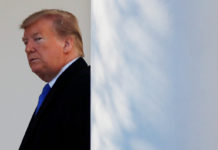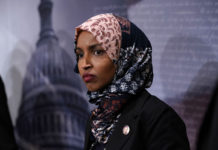
WASHINGTON — President Trump has insisted he is eager to make the case to the special counsel, Robert S. Mueller III, that he has done nothing wrong. But the questions that Mr. Mueller wants to ask show why the president’s lawyers have countered that an interview would be a minefield for Mr. Trump.
It is not just that the president has a history of telling demonstrable falsehoods, while the special counsel has already won four guilty pleas for the crime of lying to investigators. The questions would pose additional challenges for Mr. Trump, legal experts said.
Many of Mr. Mueller’s questions, obtained and published by The New York Times, are so broad that Mr. Trump would need a detailed command of a range of issues. And, complicating efforts to try to adequately prepare him for such an encounter, the president’s lawyers do not know everything that the special counsel has learned.
“This list reinforces the notion that the president should not go in for an interview with Mueller,” said Sol Wisenberg, a white-collar defense lawyer who was a deputy independent counsel in the Whitewater investigation. “Mueller knows all kinds of things — we don’t know exactly what he knows — and these are both broad and detailed questions, making real land mines.”
On Tuesday, Mr. Trump denounced the publication of the questions in a pair of Twitter posts. He called it “disgraceful” and again pronounced Mr. Mueller’s investigation a “witch hunt.” He also incorrectly declared both that none of the questions were about “collusion” — in fact, many centered on his campaign’s ties to Russia — and that it would be “hard to obstruct justice for a crime that never happened.” (Efforts to obstruct an investigation can be prosecuted even if no underlying crime is found.)
Most of the dozens of questions are about now well-known events, like the June 2016 meeting at Trump Tower between top Trump campaign officials and Russians promising damaging information about Hillary Clinton. While a few touch on Mr. Trump’s business dealings — in particular, campaign-era talks about a proposed real-estate project in Moscow — they do not signal that Mr. Mueller is examining Trump Organization finances more broadly or contain other major surprises.
In many instances, Mr. Mueller wants Mr. Trump to explain his knowledge of, reactions to or communications about private events where there were other witnesses, such as his campaign’s internal discussions of Russia-related matters and his conversations as president with and about James B. Comey, whom he fired as F.B.I. director.
The questions were drawn up in March and reflect no events since then, leaving open the possibility that they may have changed as the president’s lawyers and the special counsel continued to negotiate over an interview.
The handover to the president’s lawyers grew out of a tense moment early that month between Mr. Mueller and Mr. Trump’s lead lawyer at the time, John Dowd. Mr. Dowd had argued that Mr. Trump was too busy running the country to sit for an interview, especially if he was not a target of the investigation, according to a person briefed on the encounter.
Mr. Mueller replied that he had to question Mr. Trump to determine whether he had criminal intent when he took actions like firing Mr. Comey and raised the possibility of subpoenaing Mr. Trump to appear before a grand jury, the person said. News of Mr. Mueller mentioning the subpoena was first reported by The Washington Post.
A few days later, a lawyer working for Mr. Mueller called Mr. Dowd to arrange a second meeting, in the hopes of persuading Mr. Dowd to allow Mr. Trump to sit for an interview. At that meeting, investigators for Mr. Mueller…










